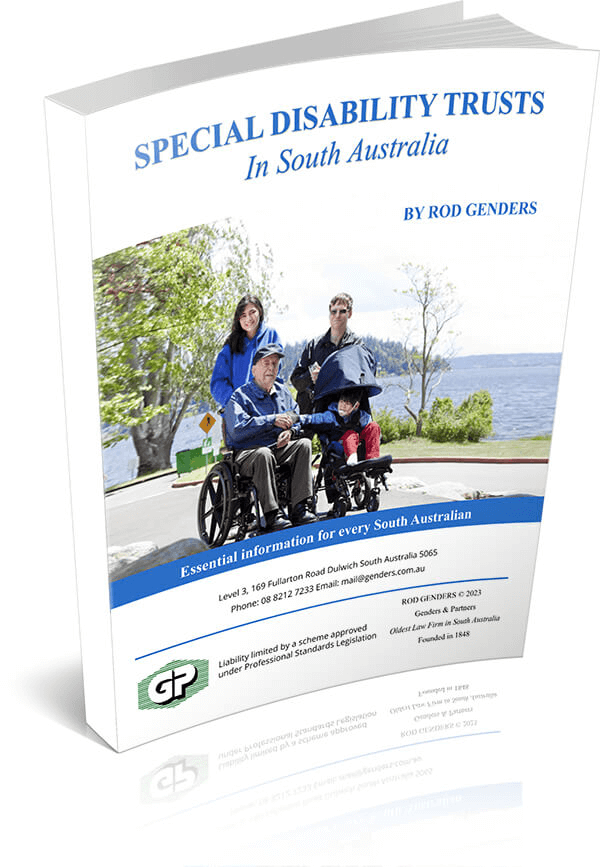No matter how old you are or whether you have kids, it’s important to consult a lawyer who specialises in estate planning to make sure you have an updated estate plan for your new life once the dust has settled.
If you are married, remember that in all Australian states the law considers you to still be legally married until your divorce becomes final, and this cannot happen until at least 12 months after separation. If anything happens to you before that divorce Decree-Absolute is issued, your estranged spouse will retain the power to make decisions over those aspects of your life, if that is what your estate planning documents permit. Remember also, that marriage will generally revoke and invalidate an earlier Will, however Divorce may not have the opposite effect. If you have separated, but haven’t gotten around to making a new Will and advance directives (such as powers of attorney), you definitely need to deal with these now.
Even if you have a good relationship with an ex-spouse and you believe you have addressed key issues for your children as part of the divorce proceedings, you need to revisit all these issues as a single individual before you move on to the next stage.
Even if you are very young with few assets, it makes sense to get some solid advice in this area so you’ll be able to manage such planning as you age and your finances get more complex. Particularly if you have kids, such planning is important if you plan to remarry and if you want to guarantee that specific assets are guaranteed for them when you die. Otherwise, “blended” families (with children from several relationships) can cause legal complexities and substantial heartache for your family after your death.
Make a guardianship game plan for your kids: It’s not enough to plan how money and assets will go to your children if you or your ex-spouse die suddenly or are incapacitated. If your children are minors, it’s particularly important to make sure you and your ex-spouse have a guardianship plan for their upbringing as well as any assets they may inherit.
Do you completely trust your ex-spouse’s new husband, wife or partner to raise your kids if your ex-spouse dies before you? It is important to establish an efficient legal structure for distributing your assets as well as appointing a trustee in a Will to train and guide your kids through that financial transition.
Plan for special needs kids: If one of your children is disabled and is expected to need lifetime assistance of some type, then you should consult a lawyer who specialises in estate planning in Adelaide to help you create a special needs trust. It will help protect your child from having to give up any public or social financial assistance (Centrelink & Medicare) as well as access to special doctors, medical help, special prescriptions or treatments that could be taken away if they were to personally inherit assets that might otherwise disqualify them for these programs.
When such assets are held in trust, they might not be counted as the child’s assets. The advantage is that those inherited assets may still be used to support their housing or other personal living needs.
1. Make a new Will. If you die before doing so, or do not have a Will at all, the laws of the state where you live may give your spouse or partner a large part of everything you own (depending on whether you have children). The first step you need to take is to have your Will made so your assets are distributed to the persons you want to inherit your estate. Name the executor that will carry out your wishes and name the beneficiaries of your estate.
2. Change your beneficiary nominations. Many people have life insurance policies, often through superannuation, and both super and life insurance allow nomination of designated beneficiaries. If this has occurred, then these assets do not pass through your Will but go directly to the persons that you have named as beneficiaries. If your spouse is still named as a beneficiary, you will probably want to change the person who will get that asset.
Review all your investments for primary ownership and beneficiary information: Even if you were advised correctly to change the names on assets you and your spouse were dividing between yourselves, it still makes sense post-divorce to review that the names are indeed correct on those assets, and most important, to make sure all beneficiary information is correct.
3. Enduring power of attorney. Every person, married or not, should have an enduring power of attorney appointing someone to handle their legal & financial affairs (such as signing cheques and legal documents or running your business). If you have given your spouse or partner a power of attorney over your affairs, he/she can transfer money out of bank accounts, sign loan documents, or get new credit cards. You would want to notify everyone who deals with your money that you are revoking that power of attorney. And you want to sign a new one appointing someone else to have these powers, just in case you are in an accident or otherwise unable to act for yourself.
4. Medical Power of Attorney (aka Advance Health Care Directive or Living Will). If you are incapacitated, who will make medical decisions for you? You don’t want it to be your soon-to-be ex-spouse, do you? The law generally allows a spouse as next-of-kin to make health care decisions for the other spouse. So if you’re recently separated, you’d better make a Medical power of attorney that will name your choice of a person to make medical decisions for you.
5. Custody of the children. If you have children with the person you are now divorcing, he/she will probably be awarded custody of the children in the event you die. It is not automatic, but the default legal setting is to do whatever is in the best interests of the children, and the presumption is that a natural parent is the best guardian at first instance. If you believe that your spouse is not the best parent for your children, you should name an alternate guardian in your Will, and explain why your ex-spouse should not be the legal guardian so the Courts will understand your choice. In Australia your nomination of a guardian of infant children does not operate as a formal appointment, however it is taken by the Courts as a strong expression of your confidence in your nominee, whom the Court will then carefully consider when choosing a guardian.
Rod Genders is a senior Australian lawyer specialising in accident compensation and estate planning in Adelaide. His boutique specialist law firm is one of the oldest and most respected in Australia – visit it at www.genders.com.au . Rod is also a prolific author and speaker. Some of his articles and books on Wills, Probate, Trusts, Estate Planning, Asset Protection and Retirement Planning may be found at www.genders.com.au/adelaide-lawyer-blog.
SPECIAL REPORT “Special Disability Trusts in South Australia”

Enjoy this article?
Check out the full report containing Special Disability Trust in South Australia from senior Australian lawyer Rod Genders.








